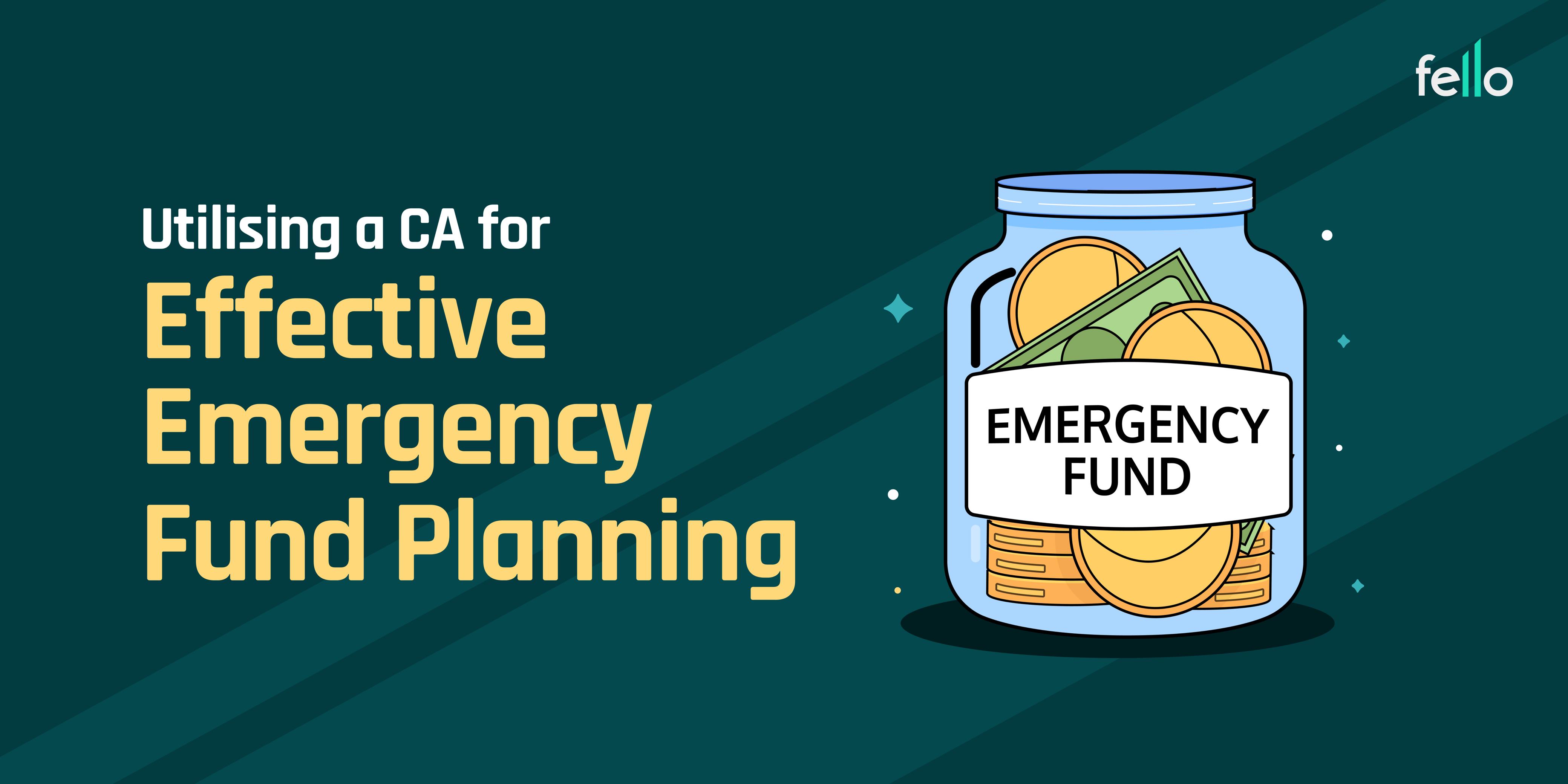A recent report by the RBI found that nearly 7 out of 10 Indians don’t have a dedicated emergency fund. Even those who do often find themselves dipping into it too early. Or worse, realising too late that it wasn’t enough. If you’ve ever found yourself wondering, “Will I be okay if something unexpected happens?” Plan your emergency savings so that it’s not just there, but actually helpful when you need it most. That’s where utilising a CA for effective emergency fund planning comes in.
Let’s talk about why this isn’t just for the wealthy or super-organised, but for anyone who wants peace of mind when life throws a curveball.
Why Everyone Needs an Emergency Fund (and Why Most Get It Wrong)
From sudden medical expenses to job loss, life has a way of being unpredictable. That’s why setting up an emergency fund is one of the smartest things you can do for yourself.
But here’s where many people get stuck:
- How much should I actually save?
- Where should I keep that money?
- How do I stay consistent?
While most people think of Chartered Accountants only for taxes or audits, they’re actually brilliant at building financial buffers that fit your lifestyle, not someone else’s.
The Role of a CA in Emergency Fund Planning
Chartered Accountants are qualified financial advisors with deep knowledge in budgeting, investment planning, and risk assessment. Here’s how utilising a CA for effective emergency fund planning can help you optimise your strategy:
1. Accurate Budgeting and Expense Forecasting
A CA can analyse your income and expenditure patterns to create a realistic savings target for your emergency fund. They account for fixed, variable, and seasonal expenses to recommend the most accurate savings benchmark.
2. Customised Financial Roadmaps
Each individual or family has unique financial obligations. A CA customises your emergency fund strategy based on:
- Income consistency
- Debt obligations
- Number of dependents
- Health and insurance status
This personalised approach ensures you’re not under-saving or over-allocating funds unnecessarily.
3. Tax-Efficient Savings Plans
Many people overlook the impact of taxes on savings. A CA can guide you toward financial instruments that provide liquidity while minimising tax liability. These can include:
- Liquid mutual funds
- Tax-free savings accounts
- Short-term fixed deposits with tax benefits
4. Continuous Monitoring and Adjustments
Life circumstances change, so should your financial plans. A CA periodically reviews your emergency fund to align it with evolving needs, inflation, and income changes.
Refer to :- Preparing for Emergencies and Goals
Emergency Fund Planning: DIY vs CA-Led Approach
Here’s a comparison to illustrate the benefits of hiring a Chartered Accountant for this process:
| Criteria | DIY Approach | With a CA |
| Expense Estimation | Often inaccurate | Professionally analyzed |
| Goal Customization | Generic goals | Personalised financial roadmap |
| Tax Efficiency | Low | High |
| Ongoing Adjustments | Irregular | Regular and proactive |
| Time & Effort | High | Minimal for you, handled by CA |
Why a CA Is Actually Worth It
Think of a CA as your financial coach—not just someone who “does your taxes.”
Here’s how utilising a CA for effective emergency fund planning actually helps:
- They remove the guesswork: No more Googling random numbers.
- They hold you accountable: Like a gym trainer, but for your savings.
- They adapt with you: Life changes? Your fund adjusts accordingly.
Plus, they know the boring but important stuff like tax-saving opportunities and inflation protection, which can quietly erode your emergency fund over time if not managed properly.
Avoid These Common Mistakes
Without professional help, many people fall into one or more of these traps:
- Underestimating monthly expenses
- Parking funds in long-term FDs or locked investments
- Forgetting to top up the fund after use
- Ignoring inflation while calculating fund size
A CA helps you build a strategy that’s resilient, relevant, and revisited regularly.
Frequently Asked Questions
Q: How much should I put in my emergency fund per month?
A: According to financial experts, it’s recommended to have 3–6 months’ worth of living expenses saved.
Q: What type of account is best for emergency fund savings?
A: Your emergency fund should be in a place that’s safe, accessible, and ideally earns some return. Options include:
- High-interest savings accounts – easy access, low risk
- Liquid mutual funds – better returns, moderate risk
- Sweep-in FDs – higher returns, auto-withdrawal feature
Final Word:
Life has its ups and downs, we all know that. But the fear of “what if something goes wrong?” doesn’t have to hang over your head. And that’s the real value of utilising a CA for effective emergency fund planning, you don’t just save money; you save yourself from panic, poor decisions, and preventable stress. So take that first step. Your future self will thank you.
Related read:- Benefits of Hiring a CA for Investment Portfolio Management

